Revolutionary lawyer Wayne Wheeler, born on November 10, 1869 in Brookfield Township in Ohio and died in Battle Creek in Michigan on September 5, 1927, is an American lawyer, who helped set up the prohibition system in his country. He is considered to be one of the forerunners of political lobbying in the United States. During the late 1800s and early 1900s, Wayne Wheeler played an important role in the passage of the Eighteenth Amendment to the United States Constitution, as the leading proponent of the prohibition movement, which prohibited the manufacture, distribution, and sale of alcoholic beverages.
Wayne Wheeler: 16 Facts That Shaped The American Attorney
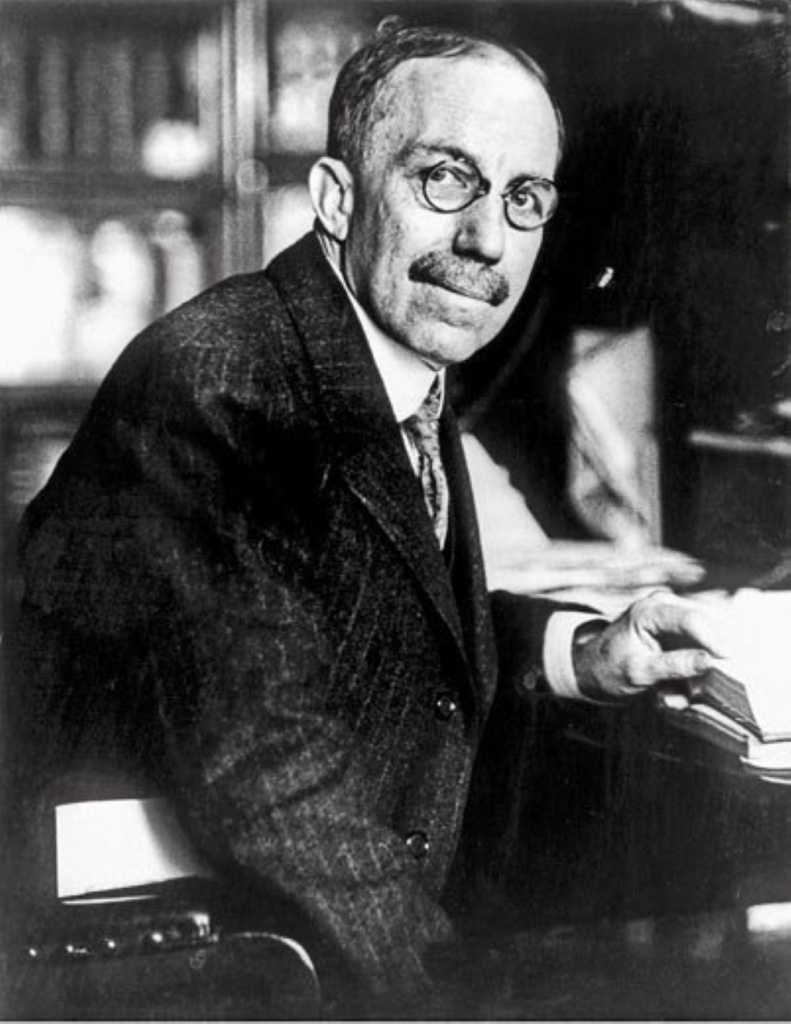
1. Quick facts:
- Birth Name: Wayne Bidwell Wheeler
- Birth Date: November 10, 1869
- Death: September 5, 1927
- Nationality: American
- Training: Oberlin College, Case Western Reserve University School of Law
- Activities: Jurist, Lawyer
2. Childhood influences that would shape his views on alcohol:
Son of Joseph Wheeler and Ursula Hutchinson, Wayne Wheeler was born on a farm in Trumbull County, Ohio.
As a child, while working on the farm, he was marked by several frightening encounters with men struggling with alcohol, which impressed him deeply, nourishing in him a lasting aversion to alcoholic beverages.
One particular childhood accident caused by a drunk employee gave Wheeler a lifelong dislike for alcohol. His anti-alcohol stance began while working on the family farm, when a drunken wage earner accidentally stabbed Wheeler with a pitchfork.
As an adult, Wheeler turned this incident into an effective anecdote to propel his stance on the prohibition of alcohol consumption. He used the story later to recruit converts to the prohibition movement and promote a prohibition amendment to the United States Constitution.
3. Education:
Wheeler graduated from high school in Ohio, received his teaching degree, and taught for two years before he began his secondary studies at Sharon in Pennsylvania then at the university of the liberal arts of Ohio Oberlin College, where he was noted for his qualities as a debater.
To pay his tuition, Wheeler worked as a waiter, dorm janitor, summer school teacher, and salesperson.
There he meets Howard Hyde Russel who founded a section of the Anti-Saloon League in Ohio. He graduated in 1894 and then Wheeler became an organizer for the Anti-Saloon League (more on that below).
He obtained his LL.B. title from Western Reserve University in 1898. He undertook legal studies while working and he graduated in law from Western Reserve University in 1898 and it was first as a student that he then engaged in the struggle for temperance. After graduation, he joined the Anti-Saloon League (ASL) and learned to master his credo on the pitch.
4. Marriage and getting his feet into the ASL door:
In 1901, he married Ella Belle Candy whose father’s fortune, an ASL sympathizer, provided him with financial security that his salary at the League did not yet provide him. The couple will have three sons.
A man named Howard Hyde Russell offered him a job (while he was still studying at Oberlin) with the newly organized Anti-Saloon League (ASL), and later said that he saw in Wheeler “a loving and self-sacrificing soul yearning to help another.”
5. Early career and continued career:
Wheeler studied law while working for ASL and, in 1898, earned his LL.B. degree from Western Reserve University.
In 1902, Wheeler became director of the Anti-Saloon League and perfected a system of single-issue lobbying policy, to achieve enactment of laws that limit or prohibit the sale and consumption of alcohol.
In 1903, Wheeler became ASL’s acting superintendent, its full-time executive director.
In 1904, Wheeler became superintendent of the Ohio State ASL, he was appointed to the position permanently, and in 1906, there fought against the re-election of Myron Timothy Herrick, a popular governor of the state. The defeat of this one is the first significant victory of Wheeler.
Wheeler held this post until 1915. Shortly after his retirement, Wheeler was beset by various tragedies.
6. Career highlight:
Wheeler’s career reached its climax with the passage of the Eighteenth Amendment and the Volstead Act in 1920.
As the enforcement of Prohibition became increasingly difficult, federal agencies tried to dissuade people from consuming it by resorting to draconian measures, including poisoned alcohol.
Wheeler’s refusal to compromise, for example by modifying the prohibition measures to allow the consumption of beer and ale, made him seem increasingly unreasonable.
Wheeler and the ASL campaigned against Myron T. Herrick, who ran for reelection as Governor of Ohio in 1906. Herrick was a Republican and Conservative, and he supported a local option bill backed by the ASL but had agreed to some modifications to ensure passage. Because of his willingness to compromise, the ASL ruled that Herrick was not sufficiently in favor of the ban and backed his opponent, Democrat John M. Pattison, an advocate of temperance.
Pattison won which marked the first real victory for the ASL.
7. National Anti-Saloon League:
In 1905, three American states banned alcohol. In 1912, the number of such states had increased to nine. Wheeler travels to Washington where he becomes a member of the executive committee and general counsel of the National Anti-Saloon League.
Under his leadership, the League is fully focused on the goal of passing strict legislation on the manufacture, transport and consumption of alcohol. It works for this, mainly at the local levels and does not neglect the partnership with the churches. From his point of view, the policy of repression is just as important as that of education.
He is on the board of the American Issue Publishing Company, the company that carries the Anti-Saloon League’s millions of publications, and on the standing committee of the World League Against Alcoholism, which brings together the temperance leagues of around fifty countries.
Refusing to join any political movement, she offers her support to candidates whose position is comparable to hers in the field of alcohol. Wheeler then developed pressure groups to achieve his objectives, initiating for the United States one of the first lobbyists known under the name of “Wheelerism”. In 1916, prohibition became part of the legislation of 26 of the 48 states of the Union.
8. Activism:
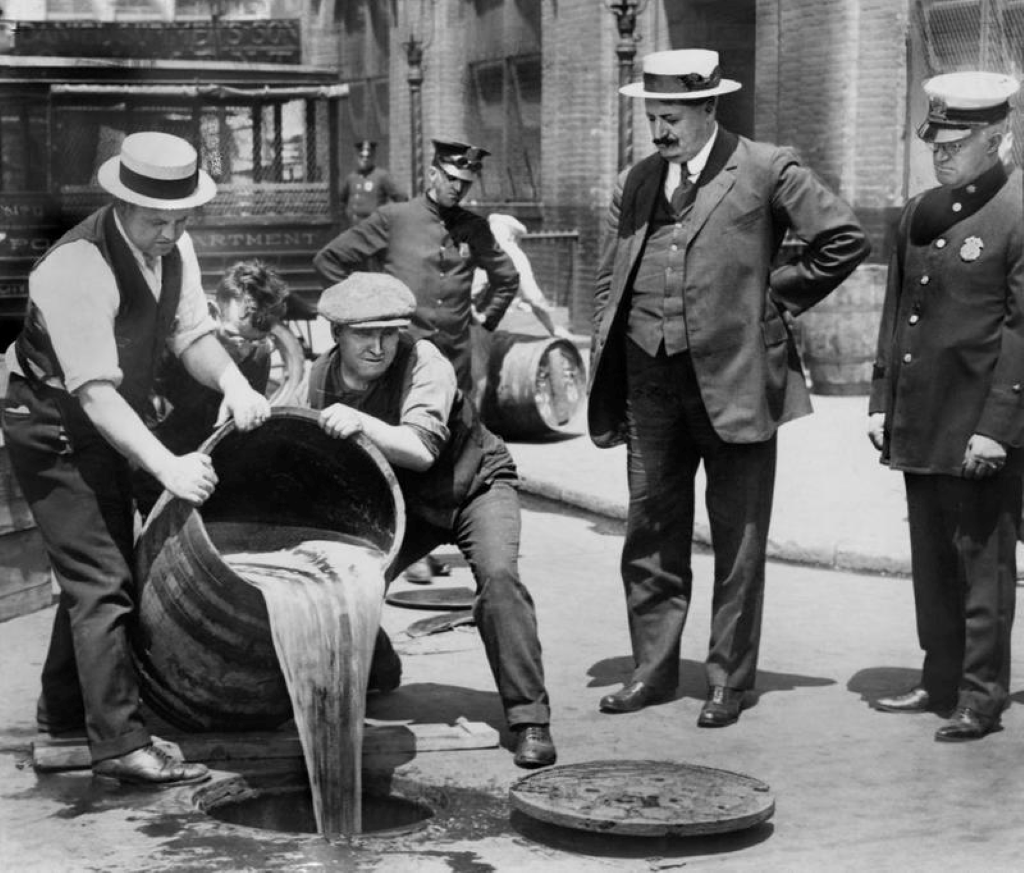
Wayne Wheeler is considered as one of the main players in the implementation of the prohibition of alcohol in the United States embodied by the Volstead Act, 18th amendment of the Constitution of the United States voted in 1919 and which Wheeler wrote the draft.
The Volstead Act does not prohibit the consumption of alcohol but the manufacture, sale, transport, import, and export of beverages containing more than 0.5% alcohol, with the exception of beverages prepared in private homes, medical beverages, or even mass wine. Wheeler’s work with states to ratify the amendment made it possible to implement it in just thirteen months and the prohibition became effective on January 16, 1920.
9. Death:
Wheeler struggled with kidney disease and passed in a sanitarium in Battle Creek, Michigan, on September 5, 1927.
Disappointed by the lack of speech and the numerous defections for personal interests of the militants whom he had promoted to positions of responsibility, Wheeler resigned from his post in 1927.
Retired in his summer house Little Sable Point in Michigan, his final year was marked by family tragedy: in August, following the explosion of a gas stove, his wife was seriously burned and father of the latter, witness to the accident, succumbs to a heart attack and dies the next day.
Wayne Wheeler died soon after, September 5, 1927, following severe kidney and renal failure at Battle Creek Sanatorium.
The 18th Amendment was repealed by FD Roosevelt from his election in 1933, ending prohibition.
10. Character and influence:
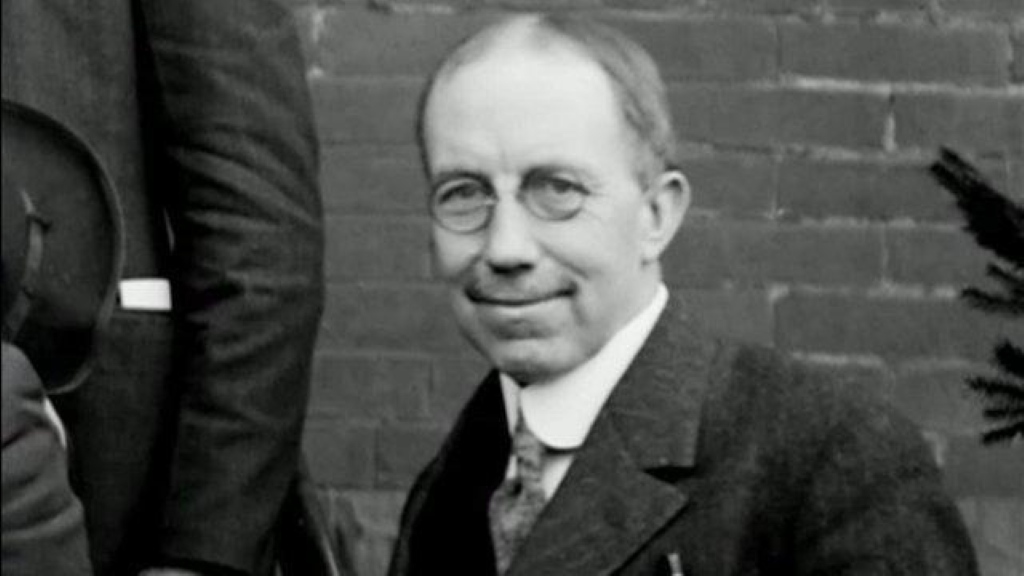
Very strict with himself, often to the detriment of his personal and family life, he frequently regrets the lack of rigidity of many of his collaborators.
Wheeler wielded great political influence and is known, through that influence, to have exercised a decisive choice in the selection of candidates for the presidency of the United States. Entirely devoted to his fight, virulent in his denunciation of alcohol and its trafficking, his lobbying maneuvers have sometimes lacked scruples.
11. Wheelerism:
As the leader of the ASL, Wheeler developed “Wheelerism,” which focused on a single issue and relied heavily on the media to persuade politicians that there was broad public support. for the ASL position. Wheelerism also included direct persuasion of those in power through threats to withdraw campaign endorsements; and not give access to the finance needed for campaigning, in addition to threats to disclose embarrassing information to gain support for restrictions on the liquor trade.
12. Years of power:
Under Wheeler’s leadership, the League was completely focused on the goal of achieving Prohibition.
Unlike other humanitarian issues, Wheeler felt that in order to successfully challenge the political influence of beer, wine and spirits manufacturers he had to achieve a national ban by any means necessary.
Wheeler was able to elect politicians by encouraging prohibitionists from both political parties to vote for candidates who supported the cause, regardless of their party affiliation or position on other issues. Unlike other temperance groups, ASL recognized the supremacy of the two-party system and worked with both the Democrats and Republicans instead of the small and ineffective Prohibition Party.
During the years of Wheeler, his influence was evident on the sale and consumption of alcohol, including Congressional override of President William Howard Taft’s veto of the Webb-Kenyon Act.
ASL elected numerous state officials, state legislators, and members of Congress.
The Webb-Kenyon Act prohibited the transportation of alcoholic beverages to states with prohibition laws, even small amounts for individual consumption. Taft argued that it was a matter of states’ rights that did not require federal legislation. The Congress disagreed, and the votes annulled in the Senate of the United States and the House of Representatives of the United States were completely unexpected, giving tangible proof of how powerful they had become the ASL and other prohibitionists.
The repeal was followed by the enactment of a national income tax authorized by the recently ratified 16th Amendment. Until 1913, the federal government had relied on liquor taxes for up to 40 percent of its annual income, but with an income tax replacing the liquor tax, that argument evaporated. Following this, the ASL got its primary goal, a constitutional amendment imposing the ban.
13. Eighteenth amendment:
As the power of the prohibition movement continued to grow, Wheeler deftly expanded ASL’s influence through timely alliances with advocates for other causes. One of her major successes was supporting the women’s suffrage movement in the belief that women would support ASL candidates at the polls.
Because Wheeler supported the suffragettes in their quest for a constitutional amendment giving women the right to vote, they supported her efforts to get a ban amendment passed.
After decades of trying, in 1919 the ASL was able to win the approval of the Eighteenth Amendment., which prohibited the production, transport, and sale of alcoholic beverages.
14. Application of the ban:
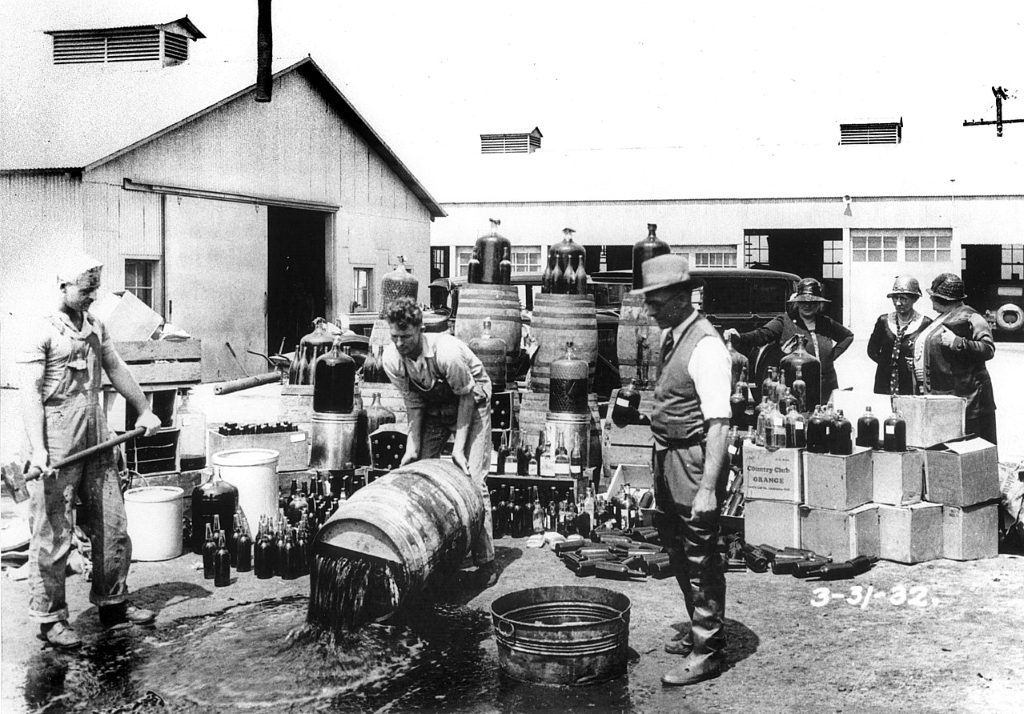
In the early 1920s, Wheeler’s power was visibly high as he participated in the drafting of the Volstead Act, which provided the means to enforce the ban amendment, as well as federal and state laws that refined the enforcement mechanisms of the ban.
Candidates who ran with ASL endorsement to controlled state governments and the United States Congress. Additionally, Wheeler’s influence extended to the Prohibition Office , which gave him control of a sponsorship operation that hired agents tasked with identifying and arresting manufacturers, distributors, and sellers of illicit alcohol.
15. Decreased influence:
The desire for alcohol among Americans wouldn’t waiver unlike what Wheeler had imagined it would after the passage of the Eighteenth Amendment, and Prohibition became increasingly unenforceable.
In 1926, Wheeler was being criticized by members of Congress, who questioned the funding and campaign contributions of the ASL. A turning point occurred when the Prohibition Office began adding poison to industrial alcohol to prevent its use in beverages.
Wheeler opposed the use of non-deadly substances like soap, arguing that the deadly poisons in industrial alcohol were an acceptable measure because the government had no obligation to protect the lives of its citizens if they broke the law by consuming alcohol. Between 10,000 and 50,000 deaths occurred, and Wheeler argued that, in essence, the victims had committed suicide.
His callous attitude coupled with his refusal to conform to enforcing the ban began to change the way the public viewed the Anti-Saloon League, and Wheeler’s influence began to wane.
16. Legacy:
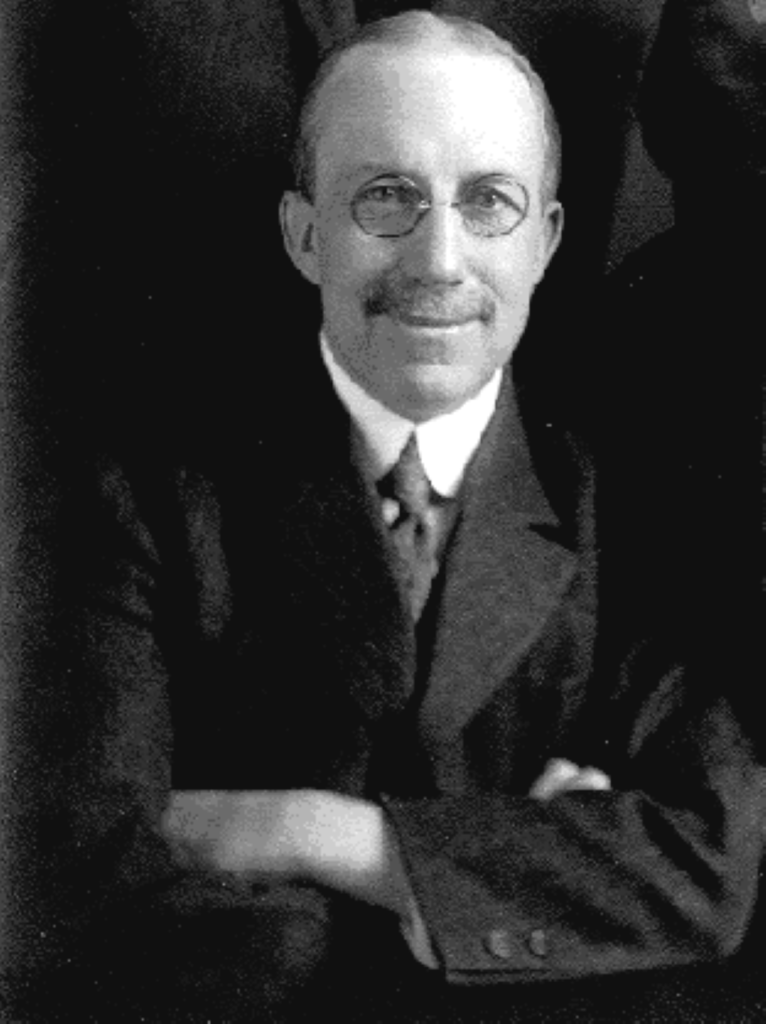
These days, Wheeler is not well known but historians who know about the Prohibition era consider the reality of Wheeler’s important role in the passage of the Eighteenth Amendment.
